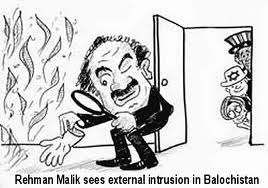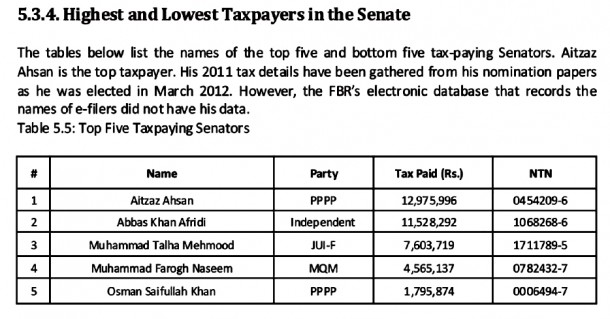 Yet its colourful interior minister, a man described by one commentator as Pakistan’s answer to London’s mayor Boris Johnson – a hugely famous politician who not everyone takes seriously – does just that.
Yet its colourful interior minister, a man described by one commentator as Pakistan’s answer to London’s mayor Boris Johnson – a hugely famous politician who not everyone takes seriously – does just that.
“We have given a good beating to the terrorist,” Rehman Malik, 61, told the Guardian in December. “We have been able to break their back, we are in a position now to fight, to fight and fight.”
It is the sort of statement his detractors say blithely ignores reality, but that has also helped turn the career bureaucrat into one of the country’s best known politicians.
Whether or not the public believes domestic security has improved will be a key issue as the Pakistan People’s party (PPP) prepares to face the electorate in a few months’ time.
Critics say the government’s poor record on basic competence issues is epitomised by Malik, who many feel owes his position more to his usefulness as a master of political dealing rather than any great ability to administer internal security.
For many Pakistanis the interior minister, with his designer ties and purple-hued hair, is the face of the government: he is the only senior member of the bloated federal cabinet to have remained in post for the entire time the PPP has been in power, eclipsing even the prime minister.
He has found fame through his almost daily television appearances, usually made at the scene of the sort of catastrophic attacks that would end the career of a home secretary.
Everyone has a favourite Malik moment. For some it was when he said a spate of sectarian murders in Karachi was the handiwork of angry wives and girlfriends. Or there was the press conference in 2011 when he revealed to a country still reeling from a brazen Taliban attack on an important naval base in Karachi that the militant assault squad were “wearing black clothes like in Star Wars movies”.
An important trip to India in December produced a crop of gaffes that prompted fury in the Indian media. “The best thing would be to put Scotch Tape on his mouth to stop him talking,” said one former Pakistani diplomat, who claims to be a long-standing friend of the minister.
“Malik has his own irrepressible style of expressing himself, which may not be one of the most sophisticated in the world, but I think serious, sober Indians understood that.”
EMBARRASSMENT OR TREASURE: Malik’s status at home – somewhere between national embarrassment and national treasure – seems secure, however. “People love him,” said Murtaza Chaudhry, producer and host of the news comedy show Banana News Network (BNN) in which an actor playing Malik regularly lampoons the minister. “He is by far the most favourite character with the viewers.”
Recently his character was shown proudly presenting a flimsy construction of cupboard boxes that he boasted was of his own design, cost “only $60,000” and could protect the public from explosions.
Malik, who seems to relish the limelight, says he enjoys watching the comedy shows. He says there is no point complaining, or challenging reports of his many famous statements, which he says are always “twisted” by the media.
However, Chaudhry said that BNN had received a 10-page letter from Malik’s lawyer objecting to the mockery.
Malik’s defenders say he is much more capable and intelligent than his public personality suggests. “To some extent it’s just a ploy to disarm everyone,” said Mehmal Sarfraz, a Lahore-based journalist who credits the minister with successfully countering some threats in areas where civilian rulers have influence (many Pakistanis believe only the country’s powerful military has the ability to tackle militancy).
“Half the time he doesn’t believe what he is saying is true, he’s just saying what he thinks the public wants to hear.”
But critics find the buffoonery far from amusing. “He makes these statements which never make any sense, so no one can take him seriously,” said Aftab Sherpao, a former interior minister who was once a leading PPP figure. “When he gets up in parliament people just mock him – they laugh and jeer him.”
One analyst suggests the mayor of London, Boris Johnson, is the nearest equivalent politician in the West because he is “kind of goofy, kind of silly but people like him”.
Malik thinks he is more of a Mandelson, a Churchill, or a Miliband (“the one who was British secretary of state, not the present one”). “But I would not want to be compared to any of these people,” he said after reeling off more names, including a US president. “I consider myself a worker, a party worker – that is all.”
Despite his protestations of humbleness, the elected senator has achieved a remarkable, and to many perplexing, level of power in government. Neither a lifelong politician nor a member of the landed gentry, he rose from within the bureaucracy despite being what one commentator called a “lower-middle class outsider”.
His break came in the 1990s when he was spotted by Benazir Bhutto. At the time she was PPP leader and in her second term as prime minister and he was an official at the Federal Investigation Agency.
POLITICAL FIXER: He made himself an indispensable political fixer, particularly when Bhutto was living in exile in London in the late 1990s (until recently Malik was a British citizen and still has family and major business interests in the UK).
His influence over President Asif Ali Zardari is less clear. Some believe Malik has potentially damaging information about the business activities of a couple who have faced a number of overseas legal cases and investigations into major corruption allegations.
Cynics say his job is not to grapple with crime and terrorism, or reform the country’s dysfunctional interior ministry, but to help Zardari do whatever it takes to hold together his fragile governing coalition.
Malik is regularly dispatched to Karachi to smooth things over with the Muttahida Qaumi Movement whenever the party flexes its muscles.
On Jan 2 he even shuttled to London for a last-minute meeting with Muttahida supremo Altaf Hussain after he announced his party would participate in the anti-corruption protests in Islamabad orchestrated by Tahir-ul-Qadri. “As far as Altaf Hussain is concerned, Malik is just an errand boy,” said Aftab Sherpao.
Nonetheless, it will be on domestic security – as well as the dire state of Pakistan’s economy – on which the public are likely to make their judgment in the coming months.
According to the Pakistan Institute for Peace Studies, the level of violence has dropped since the government came to power in 2008. But the past few weeks have seen an attack on a major airport, the assassination of leading politicians, and the kidnapping by the Taliban of 23 tribal policemen – 21 of whom were lined up on a cricket pitch and killed.
Although sectarian attacks remain a huge problem, claiming 537 lives last year and injuring many more, Rehman Malik takes credit for “creating harmony between Sunnis and Shias”.
“In my five years there is hardly killing, mass killing, of Sunnis and Shias,” he said, weeks before two dreadful mass-casualty attacks on Hazara Shias in Quetta this year that claimed almost 200 lives. He says his strategy of “psy-war” – making sure the security forces have “a good backing and personal patting” – is paying off.
“It is important because your people are demoralised in war, you have to give them hope,” he said. “Wherever there is someone killed you must have seen I’m going to the field, in minutes I am there on the scene, supervising the whole situation.”
He has upset people with his enthusiasm for shutting mobile phone networks in major cities at short notice in an attempt to thwart terror plots; although the tactic seems to work.
In September he pushed for a national “Love of the Holy Prophet” day in response to public anger over a crude YouTube video that mocked Islam. What was meant to be a peaceful day of protest was taken as a state-sponsored opportunity for deadly rioting by religious extremists.
One diplomat, who was on “lockdown” as teargas drifted across the embassy walls from pitched battles between demonstrators and police outside Islamabad’s embassy quarter, recalls being phoned by a delighted Malik reporting how well he thought it was all going.
“I let them protest, but from a certain point I will not let them go further,” Malik said. “I ordered the [teargas] shelling. Had I not been there they had full programme to barge in [to the diplomatic enclave].”
BNN is working on a special series dedicated just to Malik, who will appear as a caped superhero. In Chaudhry’s favourite scene, Malik will be seen rushing into a burning building – but only to rescue a dog.
In the background people throw themselves from windows to escape the inferno as Malik delivers his catchphrase to the waiting TV crews: “Everything is under control.”
By arrangement with the Guardian







 But why he went against the Baloch of Aman Committee who were armed and raised against MQM by PPP itself?
But why he went against the Baloch of Aman Committee who were armed and raised against MQM by PPP itself?


